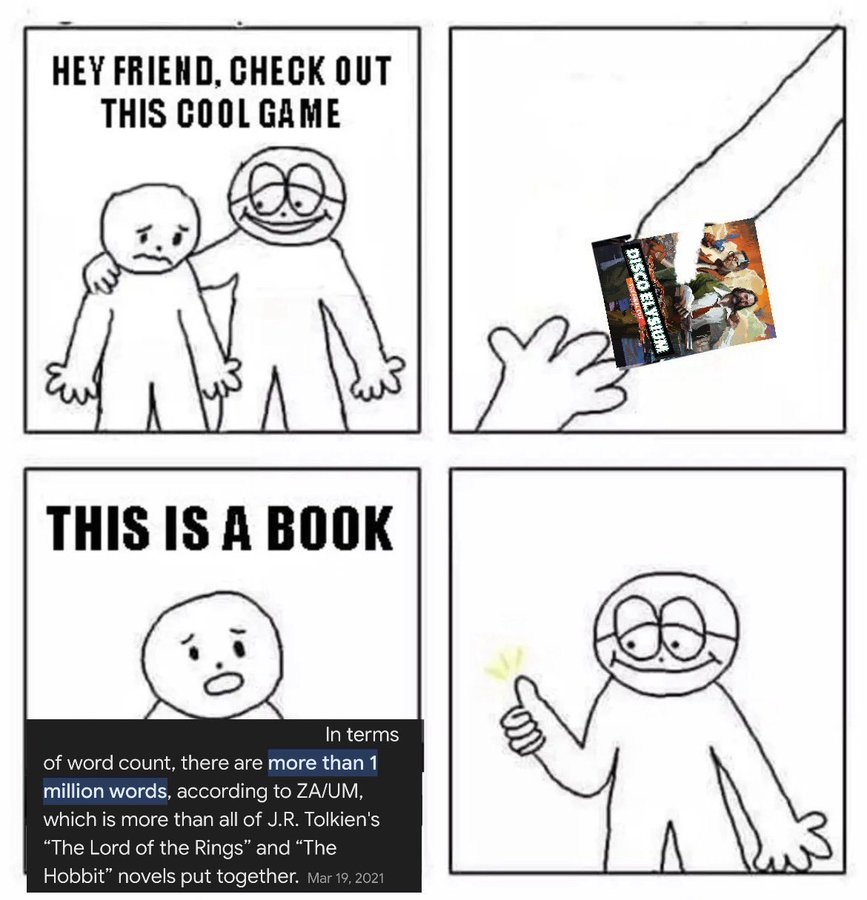this post was submitted on 24 Feb 2024
234 points (100.0% liked)
games
20513 readers
237 users here now
Tabletop, DnD, board games, and minecraft. Also Animal Crossing.
-
3rd International Volunteer Brigade (Hexbear gaming discord)
Rules
- No racism, sexism, ableism, homophobia, or transphobia. Don't care if it's ironic don't post comments or content like that here.
- Mark spoilers
- No bad mouthing sonic games here :no-copyright:
- No gamers allowed :soviet-huff:
- No squabbling or petty arguments here. Remember to disengage and respect others choice to do so when an argument gets too much
founded 4 years ago
MODERATORS
you are viewing a single comment's thread
view the rest of the comments
view the rest of the comments

spoiler / Japanese lesson
It’s the Q thing, but it’s pointedly not qqq.Numbers in Japanese are weird, and have multiple readings. There’s a native Japanese system ("koko" for 9) and a more common Chinese-derived system ("kyuu" for 9), but the number 9 actually has two Chinese-derived readings (the second one being "ku").
Different readings are used in different contexts. "kyuu no [thing]" is always a valid way to say 9 of something, but "ku" is used with some counting words and there are plenty of old-fashioned words and phrases using the native reading ("koko-no-tsu" is a very common way to say "9 [things]" or "9 [years old]").
The Japanese title is 極限脱出 9時間9人9の扉, with the subtitle pronounced "kujikan kunin kyuu no tobira". That’s really the only natural way to write it, so you don’t notice anything weird, but it’s definitely a choice.
The 「の」 particle basically turns the preceeding noun into an adjective, and nouns can be either plural or singular based on context. Taking those together 「9の扉」(kyuu no tobira) means "9 doors", but it can also mean "the 9 door". "The kyuu door."
In contrast, 9時間 (kujikan) and 9人 (kunin) are compound words that unambiguously mean "9 hours" and "9 people".
Wow that's so cool!! Thanks for telling me about this! I can't imagine what other details got lost in localization. At least the west got that box art that can be flipped upside down.